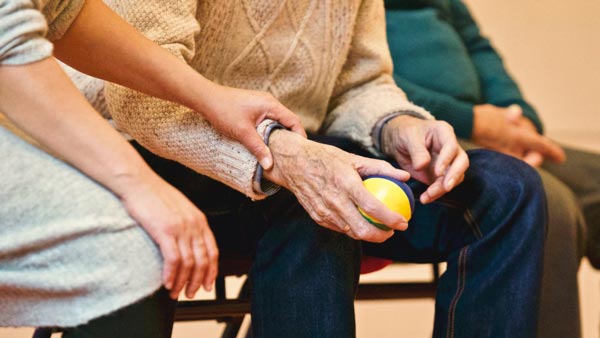
Overcoming Grief
Losing a loved one is a devastating experience and sometimes there is nobody to talk to or share our grief with. It helps to understand how grieving is experienced because you can better cope through the process of loss and eventually overcome your sadness. Green Meadow Memorials created this brief guide to help you.
Are You Grieving?
 Grief is a natural process in life, although certainly not the easiest or simplest. Some might even feel numb after the loss of their loved one which can make it seem like they're not grieving.
Grief is a natural process in life, although certainly not the easiest or simplest. Some might even feel numb after the loss of their loved one which can make it seem like they're not grieving.
Symptoms that you - or someone you love - are experiencing grief include:
- Disruption of normal routine/inability to maintain routine.
- Depression.
- Questioning life.
- Feeling helpless.
- Isolation.
- Feeling guilty (survivor's guilt)
- Anger
Additionally, there is a different, more problematic type of grief termed Complicated Grief where you may experience these and other symptoms more than a year after your loved one's passing.
Some will feel physical symptoms including:
- Headaches
- Nausea
- Shortness of breath.
- Fatigue
- Insomnia
- Appetite changes.
Grief Is Not a One-Size-Fits-All
 One popular model of the grief experience was introduced by author Elisabeth Kübler-Ross who developed the five stages of grief after working with terminally ill patients.
One popular model of the grief experience was introduced by author Elisabeth Kübler-Ross who developed the five stages of grief after working with terminally ill patients.
The five stages she identifies are:
- Denial
- Anger
- Bargaining
- Depression
- Acceptance
This theory was largely accepted until more recent research by Yale University revealed that yearning and acceptance were also prominent parts of the grieving process and additional researchers caution that there may be more to the grieving process than the five stages.
Regardless, when we lose someone we love, we are sure to feel at least some - if not all - of these emotions, and maybe more. And since we are all unique individuals, we may not experience these things in the same order or in the same way or to the same extent.
Grief Is Not Just Grief
There's a reason they call grieving a "process". It certainly doesn't happen overnight and it involves more than just mourning the loss of your loved one.
When we lose someone we love - especially someone who was an integral part of our daily life - we are also faced with another uncomfortable experience: Change. And not just a small change but rather, a life-altering change.
This can compound our sense of feeling lost and sad and we may not even realize we're grappling with this monumental change but in a subconscious way. Change is a very frightening thing for many people but can be crippling when coupled with the death of a loved one.
Coping And Overcoming Your Loss
The first thing to remember is this: You are stronger than you know and you will get through this. Here are some things that can help you navigate the roller coaster of emotions you are bound to be feeling.
Talk About Your Loved One
 For some, talking can feel frightening and talking about difficult subjects can be even more challenging. In addition to feeling uncomfortable talking about the loss of someone we love, psychologists say many of us experience Terror Management Theory (TMT) when we discuss anything related to death.
For some, talking can feel frightening and talking about difficult subjects can be even more challenging. In addition to feeling uncomfortable talking about the loss of someone we love, psychologists say many of us experience Terror Management Theory (TMT) when we discuss anything related to death.
However, sharing thoughts and memories about them with others can be cathartic. It can even bring a little smile as you think back on some fun or humorous memories.
Talking about your loved one can also help bring emotions to the surface that are bubbling beneath without you consciously being aware of them.
When we talk openly about our loved one's passing, we allow ourselves to get close to the feelings associated with the loss and, thus, closer to acceptance and surrender.
If you're not sure where to begin, try looking at old photographs or reading old letters. These can help you begin your narrative.
Accept Your Humanness
Resist the urge to condemn your feelings and reactions or compare yourself to others. You are only human after all, and all humans are unique.
Whatever feelings you are experiencing, are yours and they are not "right" or "wrong" -- they just are. Accepting the way that you are feeling is a healthy way to move through those emotions.
The reality is, emotional avoidance doesn't remove the emotion; it really just packs it away in a closet, waiting for the door to open in the future. It's natural to go through many different emotions of varying intensity during a time of loss. Allowing it to happen and accepting it for what it is, can help you move past it.
So whether you want to ball up into a fetal position and bawl your eyes out for hours or smash plates on the floor, it's okay.
Take Care Of Yourself
It may seem daunting; you may not feel like getting out of bed at all, much less performing regular activities or cooking dinner.
However, when you're experiencing bereavement, it's crucial to keep up your physical and mental strength.
This can be difficult in situations where your loved one lived with you and you're surrounded by reminders of them but it's important that you spend time taking care of yourself.
Some might interpret this as "stay busy" but that's not necessarily the case. While keeping busy can help, self-care is different.
Self-care includes:
- Eating right.
- Getting enough quality sleep.
- Exercise (even just a walk to the park or some simple stretches).
- Giving yourself permission to say no to others.
- Spend time outdoors.
- Spend some time reading a book.
- Spend some time journaling.
- Find comfort in accepting help from others.
Of course, grieving takes a lot of mental energy and can be exhausting. But these things can help you get back on track and transition to the new life you are going to be living.
Help Others Going Through Grief
It has long been established that helping others, helps us, too. But when we are experiencing grief - sometimes feeling the world is lost to us - it can feel impossible to think about helping others.
However, helping others work through their grief is a powerful way to help you work through yours.
And since you, too, are on your own journey of loss, you are uniquely qualified to listen because you better understand what they are going through.
If you're not sure who to go to, there are plenty of grief support groups. Consider doing an online search for support groups in your area. This way not only can you potentially help others, but get support and advice from them as well.
Celebrate The Life of Your Loved One
 You knew them well; You knew what they loved and what they didn't. You knew their favorite songs, colors, seasons, and t-shirts.
You knew them well; You knew what they loved and what they didn't. You knew their favorite songs, colors, seasons, and t-shirts.
What are some ways you can celebrate the life they lived by honoring those things most dear to them?
There are some simple (thought not always easy) and even fun or quirky ways to celebrate someone's life.
- Donate to their a charity in their name.
- Donate their clothing or other items to charity.
- Plant a tree or garden in their honor.
- Frame a favorite quote of your loved one and hang it on the wall.
- If they loved animals, adopt a puppy or kitten in their honor.
- Finish a project they had not completed.
- Spread some of their ashes in a place that was special to them.
- An engraved cremation urn can honor a passion or personality trait of your loved one.
These are just some of the ways you can honor them after they're gone.
Seek A Professional
Sometimes grief can become too overwhelming and no matter how hard we try, we just can't seem to get our feet back in the game of life. This might be particularly true if your loved one's passing was unexpected.
In cases such as this, it might be necessary to seek professional help. Some signs you might need to seek help include:
- Inability to function through regular daily talks/routines.
- Drug or alcohol abuse to numb/escape the pain.
- Incessant feelings of guilt.
- Feelings of self-harm or suicide.
- Lack of self-care.
- Isolation.
- Lack of support from others.
- Loss of appetite.
- Inability to focus.
- Feelings of helplessness or hopelessness.
- Depression (especially that associated with complicated grief).
If you are experiencing any of these symptoms, consider reaching out to a mental health expert or grief counselor. Of course, if you are experiencing these things, just the thought of trying to find someone can be overwhelming.
But it is important that you find some way to experience the process of grief with healthy support and guidance, especially if you have no - or very little - in the way of support.
Grieving is a natural part of life but that doesn't mean it's an easy one and for everyone, the experience is different. The most important thing to remember is that it is a process and by that nature, is something we must work through to reach where our lives will go next.
There is no right or wrong way to do it. Instead, know that you have been through rough and difficult times in the past and this time, too, you will move beyond this difficult situation and overcome your loss.


